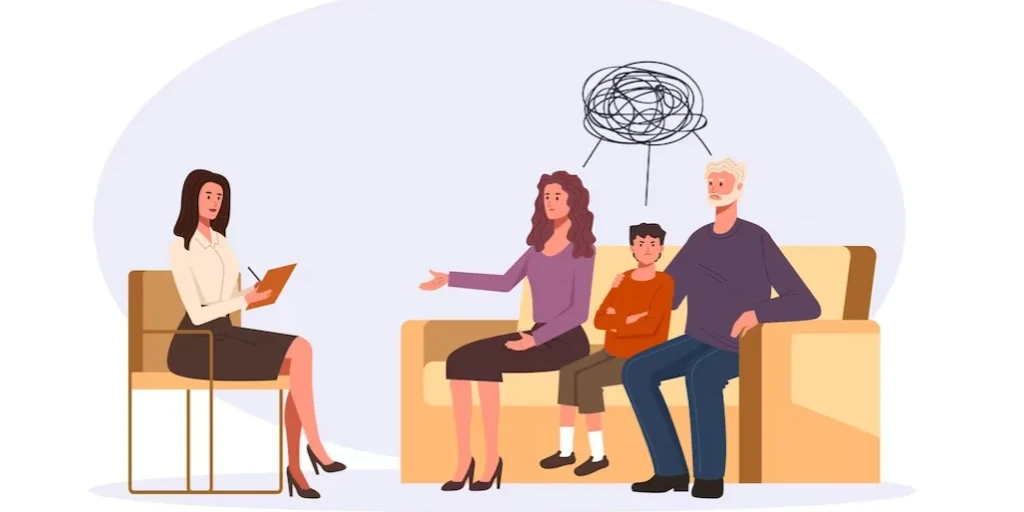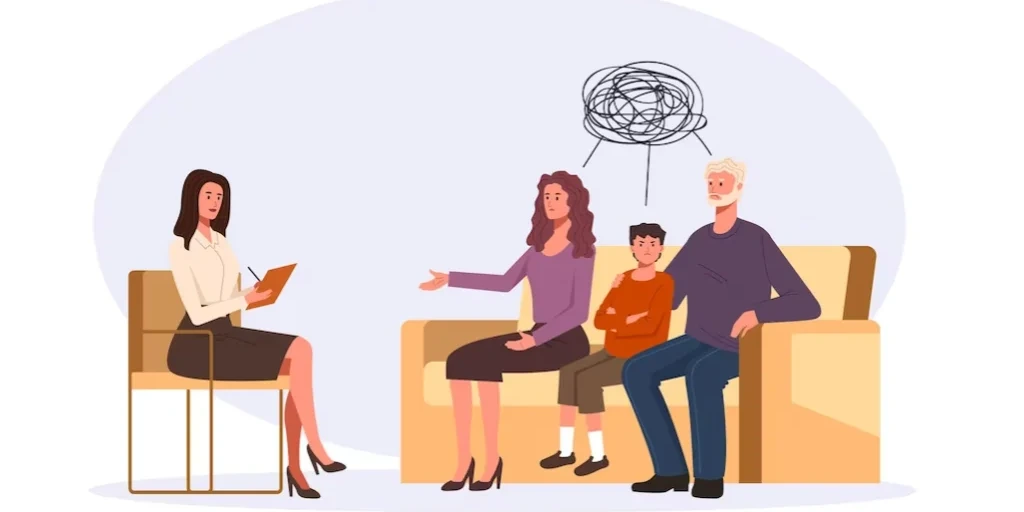24/7 Helpline:
(866) 899-111424/7 Helpline:
(866) 899-1114
Other Insurance Options

EmblemHealth

Holman Group

Sliding scale payment assistance

Humana

Coventry Health Care

Kaiser Permanente

AllWell

PHCS Network

WellPoint

Providence

Carleon

Magellan Health

WellCare Health Plans

Evernorth

Ceridian

BHS | Behavioral Health Systems

Optum

Optima

Health Choice

Highmark








Saint Clare’s Behavioral Health
Saint Clare's Health in Denville, NJ is a behavioral health treatment center that offers a wide rang...

Sunrise Detox Stirling
The Sunrise Detox Stirling, New Jersey facility is a drug and alcohol detox center for men and women...

Mount Olive Counseling and Clinic
Mount Olive Counseling and Clinic is a private counseling clinic located in Ledgewood, NJ. Mount Oli...

Morris County Aftercare Center
Morris County Aftercare Center is a private outpatient rehab located in Denville, NJ. Morris County ...

Summit Behavioral Health Florham Park
Summit Behavioral Health Florham Park offers outpatient addiction recovery services for adolescents ...

High Focus Centers
High Focus Centers is a substance use and co-occurring disorder treatment facility located in Parsip...

Morris County Prevention is Key (MCPIK)
Morris County Prevention is Key is a community-based organization that provides science-based preven...

Cambridge Recovery Sober Living
Cambridge Recovery Sober Living is a drug and alcohol rehab and sober living in Flanders, NJ. They p...

Absolute Awakenings Treatment Center
Absolute Awakenings Treatment Center, a co-occurring substance use disorder treatment center in Denv...

Campbell County Memorial Hospital – Behavioral Health
The Campbell County Memorial Hospital (CCMH) Behavioral Health center in Gillette, Wyoming provides ...

Youth Emergency Services
Youth Emergency Services is a private rehab located in Gillette, Wyoming. Youth Emergency Services s...

Second Chance Ministries
Second Chance Ministries aims to help men and women released from incarceration into Campbell County...





















































































































































































































































































































































































































































































































































































































































































Willow Tree Counseling Associates
Willow Tree Counseling Associates empowers, counsels & educates individuals and families to build al...

Step Ahead
Step Ahead is an outpatient counseling agency treating substance abuse addiction and nicotine addict...

Saint Claire’s Behavioral Health
Saint Clare’s Behavioral Health is a substance abuse and co-occurring mental health rehab facility i...

Community Hope
Community Hope is a private rehab located in Wharton, New Jersey. Community Hope specializes in the ...

Ascend Treatment and Wellness Center
Ascend Treatment and Wellness Center is a private rehab located in Rockaway, New Jersey. Ascend Trea...

Neurocognitive And Behavioral Institute
Neurocognitive And Behavioral Institute is a private rehab located in Mount Arlington, New Jersey. N...

Personal Frontiers
Personal Frontiers Inc is located in Gillette, Wyoming. Personal Frontiers Inc provides substance us...

Volunteers of America Northern Rockies – Booth Hall
Located in Gillette, Wyoming, Volunteers of America Rockies- Booth Hall offers alcohol and drug reha...

AA – Alcoholics Anonymous
AA – Alcoholics Anonymous is a non-profit rehab located in Gillette, Wyoming. AA – Alcoholics Anonym...




































































































































































